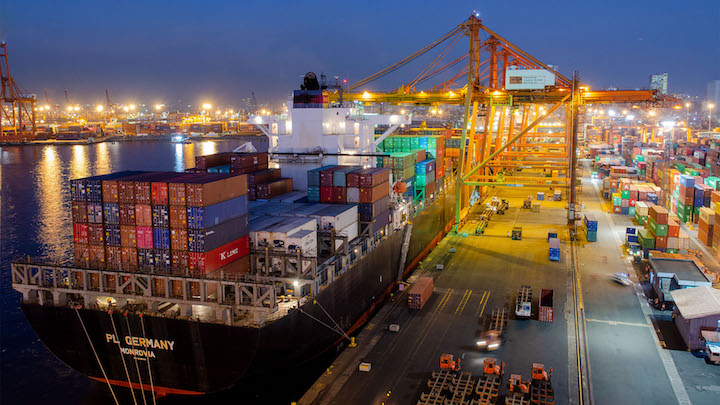 [ad_1]
[ad_1]
The connection to Tradelens, a blockchain platform developed jointly by IBM and Maersk, allows all ICTSI terminals to have authorized access to accurate information on the movement of goods well in advance of the arrival of ships. Container monitoring through networked data exchange enables efficient resource planning for all entities involved that use near-real-time data to create end-to-end data visibility. Leveraging a state-of-the-art business data platform, ICTSI will manage a single global TradeLens connection that will enable rapid service innovation and improvement in partnership with TradeLens.

“We are now testing the system and transferring information on the loading and unloading of cargo, the docking of ships to the blockchain platform. After the complete system integration, we will be able to streamline work with regulators, improve the visibility of our terminals on what’s coming to them and receive online updates from shipping carriers, “says Brian Hibbert, Vice President and Head of ‘ICTSI Information Officer.
Launched in 2018, the TradeLens ecosystem now includes more than 175 organizations, spanning more than 10 ocean carriers and including data from over 600 ports and terminals. It has already tracked 30 million container shipments, 1.5 billion events and about 13 million published documents.
“The broadening of the geographic scope of the platform is reinforced by the addition of ICTSI and offers new opportunities for TradeLens participants as the ecosystem continues to expand rapidly. We are excited to welcome ICTSI and look forward to creating new ways of working for shippers and recipients who indirectly use their services, ”says Thomas Sproat, Director of Network Development at TradeLens.
TradeLens not only allows carriers and freight owners to exchange transaction information in real time, it also sends associated business documents to authorized parties. Blockchain technology reduces the processing time of traditional paper documents, making it quicker and easier to issue bills of lading for goods, health certificates, payment invoices and other types of documentation. For terminals, this is particularly important when considering dangerous cargoes and potential efficiency improvements in the terminal release and customs clearance processes.
The ability for customers to obtain faster and more granular information from terminals, such as those managed by ICTSI, allows them to better manage a critical phase of the container journey. From information on container unloading, to gate in empty details, having a single source of visibility for container movements directly improves efficiency during invoice planning and reconciliation cycles.